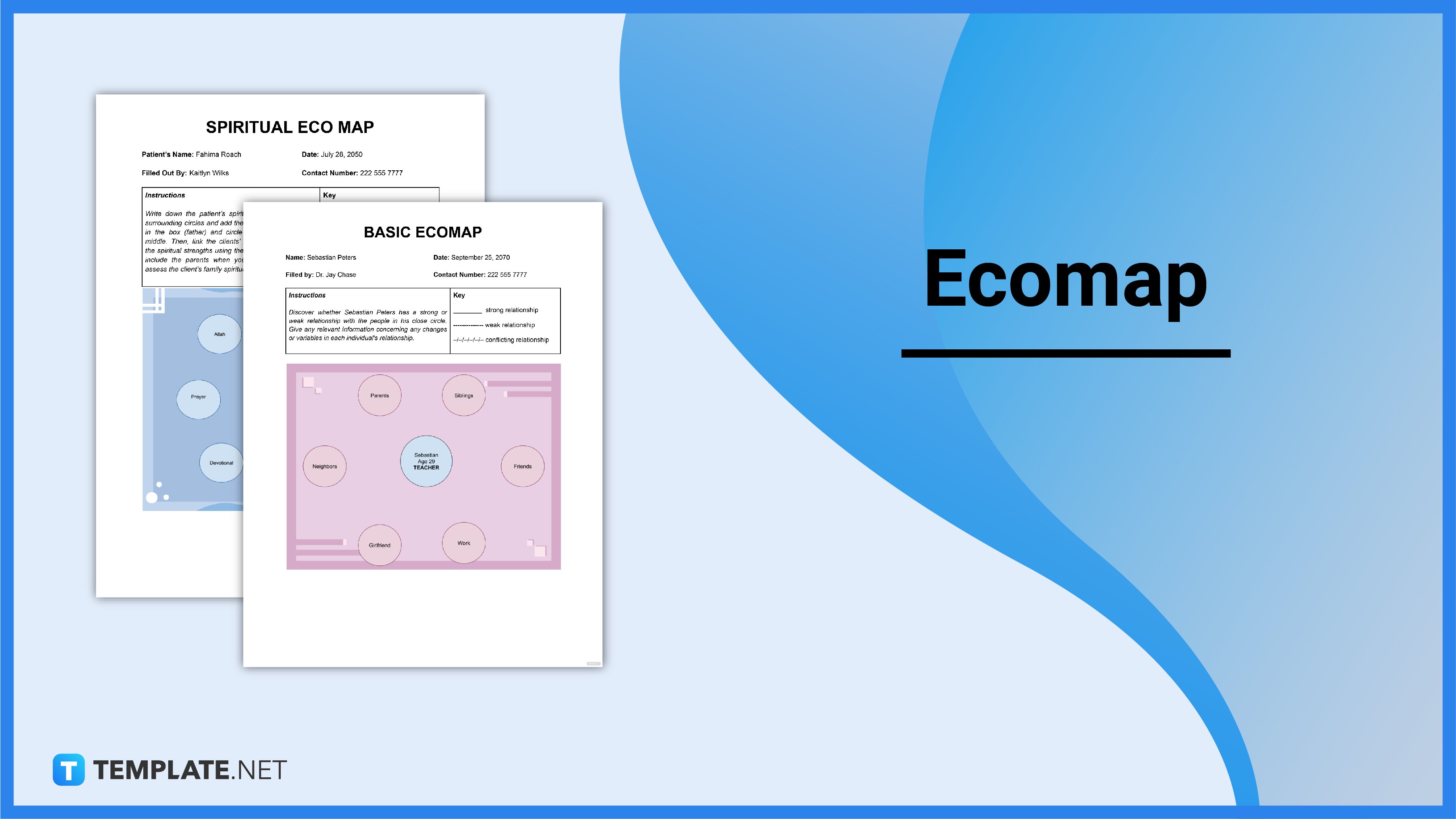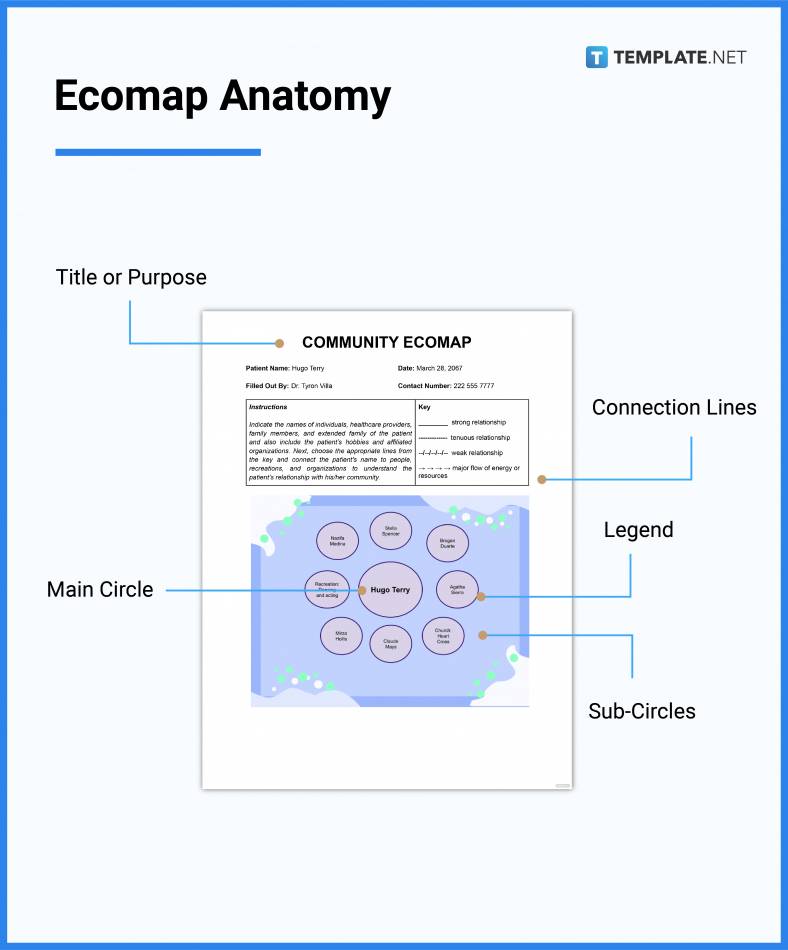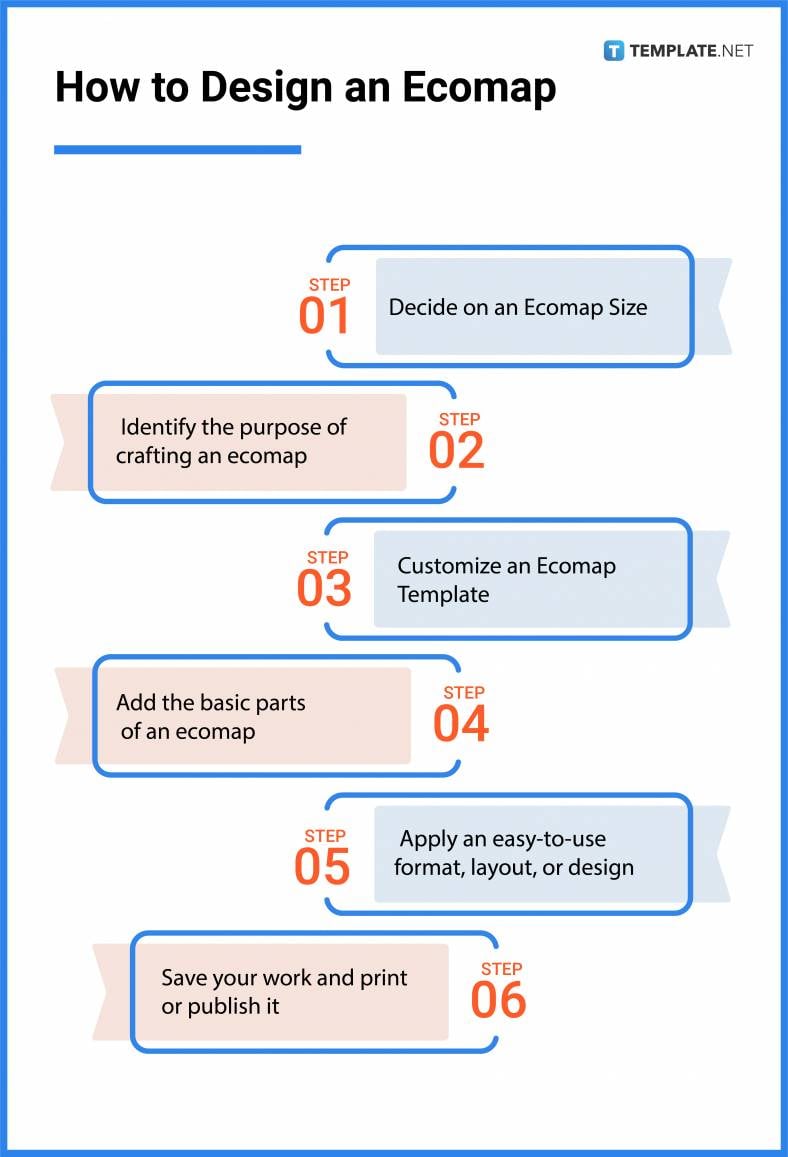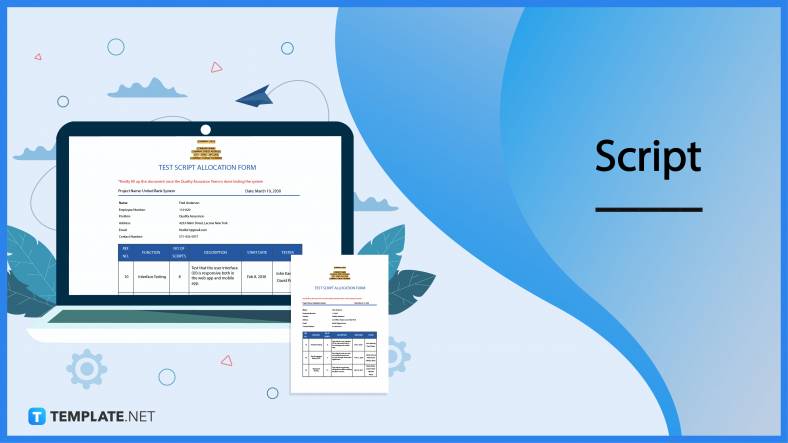![How To Make/Create an Invitation in Google Docs [Templates + Examples]](https://images.template.net/wp-content/uploads/2023/07/How-To-Make_Create-an-Invitation-in-Google-Docs-Templates-Examples-788x443.png)
How To Make/Create an Invitation in Google Docs [Templates + Examples]
To formally invite someone or a group of people to an event or activity, you will need to send out…
Aug 08, 2024
Ecomaps are simplified graphic tools that display relationships and connections between people. Upon its development in the 1970s by Ann Hartman, an ecomap has been a staple instrument while working with a social services worker, developing a proper case plan, and assessing family needs.

An ecomap or ecological map is a type of visual map that depicts the bigger picture of a person’s social connections.
Ecomaps address an individual’s relationship with the family, society, and other external connections.
An ecomap is a schematic diagram that outlines one person’s social interactions; hence, it focuses on a subject of concern’s ecological perspective. A social worker, counselor, or medical expert may utilize a person in question’s ecomap during a social assessment, particularly one’s family and community relationships. Illustrating a person’s network through an ecomap may also include recognizing environmental connections and the ecosystem in general.
A genogram ecomap is a hybrid diagram containing both a genogram and an ecomap. That means this type of map portrays a family’s composition or history like a genogram but also focuses on depicting a person’s social network like an ecomap. Your genogram ecomap’s subject of concern can be a child, student, patient, or just about any client whose social connections concern you.
One popular type of an ecomap is the family ecomap. This graphic tool is more nuanced compared to a family tree because not only will you identify the names of family members but also their relationships and how different aspects go into a family’s life. A family ecomap is often used as a graphic design for family assessments concerning social work, adoption, or family therapy.
Social affinities and community rapports are essential when it comes to being socially healthy and there is a specific ecomap used by social workers for various purposes. Here enters the social work ecomap which outlines a client’s familial and social relationships such as to assess what could have been the issue of a person’s disconnection from other people. Social work ecomaps are more focused on the quality of a client’s relations.
One’s social relationship towards the environment and ecosystem is clearly expressed in an individual ecomap. From the name itself, you can tell that an individual ecomap maps out one person’s connections with others. A person can be influenced by one or a thousand connections and it would help to understand that specific person’s ecological perspective through an individual ecomap.
Nurses have their own intentions for using ecomaps and a nursing ecomap is the most fitting type of diagram for these health professionals. A nursing ecomap may structure where a patient’s persona could have been nurtured from, the connection of a person’s medical history, how functional health patterns are linked, etc. Social network connections gathered from nursing ecomaps would even be helpful for health research.
Personal relationships of an individual to the rest of the environment are expressed in a graphic personal ecomap. An individual’s persona can be tracked according to one’s linked connections on a social and personal level. Thus, a personal ecomap is one of the many visual platforms you can use for profiling relations and comprehending how they are connected.
A blank ecomap is a standard ecomap that you can fill out and sign. It is an editable graphic map where you can manually label the parts of an ecomap by filling in the blanks. Whether you opt for writing answers in a printed ecomap or typing the elements in a PDF or digital ecomap, make sure you know your labels carefully to correct your ecomap’s details.
Community relationships, connections, and networks are properly displayed in a solid community ecomap. Use this specific ecomap to determine the different relationships in a community rather than including all sorts of external relations. How a person adjusts to a new community can be evaluated in this great example.
When the connections involved are the main concern of an assessment, be sure to utilize an organizational ecomap instead. A common checklist for you to include in an organizational ecomap is to evaluate the manager’s connections with the executive assistant, software development team, technology supply department, employees, building budget department, online marketing team, and customers. It depends on who the main subject of concern is as long as the relations displayed in the organizational ecomap are part of an organization.
The one person ecomap outlines a single person’s relationship to any other individual she/he/they connected with. An example is during a counseling assessment where one’s psychology can be traced from who a client has contacted frequently before. Or perhaps, you refer to this ecomap when you need to gather evidence about a client’s connections, learn from who a person spends time and activity mostly, and more.
Ecomaps effectively portray an individual’s social connections but you might be wondering why it is necessary or important to do so. Rest assured, visual tools such as ecomaps play a significant role in society, such as the following:
An ecomap is an easy-to-read diagram about social connections consisting of a few words, circles, lines, and other shapes rather than using long paragraphs or articles to explain relations. With its schematic graphic presentation, you get the big picture as to where a person gets support from or which relationship could have brought conflict to a client. That said, it wholly depends on how detailed and coherent your data is in the ecomap. For a wider selection of social media contract templates, check out more options here.
The ecomap’s special factor is it does more than being a profile of names linked to one subject of concern; it shows how each party is connected. For example, you draw a set of broken lines between two names to depict a shaky connection while you draw a solid line for a strong relationship. It is through the custom symbols and easy-to-follow format of an ecomap that you visually understand how relationships work.
A single ecomap could help explain several ecological assessments such as social needs, resources, strengths, weaknesses, and more. Remember that one client’s social environment may involve their links to school, work, child care, church, welfare support, and many other external factors. Eco mapping’s structured data can form several insights about the crucial networks of a subject. Find more social media graphic templates by visiting this link.
Don’t underestimate an ecomap’s benefits to the society because there are quite a lot. Examples of benefits include how an ecomap can track the respondents’ network background of a social study, streamline the answers to questions in social work services, or identify the social context to a range of connections. Most importantly, leverage an ecomap to grab the context of every connection’s impact on the subject being evaluated.
You already know that social work assessments and ecomaps go hand in hand, and it has something to do with how ecomaps express the systems theory. The systems theory refers to a detailed study of systems, such as the artificial and natural interrelated components that affect various systems, but in an ecomap’s case, it is the system of relations. One can greatly evaluate a subject’s social connections to understand the quality of every relationship, the level of affinity, the nature of the connection, and more. Explore a variety of social media graphics templates here.
A title or purpose statement is where you indicate the type of ecomap you are portraying. Whether it is a social work ecomap, nursing ecomap, or any ecomap type, label your title accordingly so it won’t get mixed up with other types.
The main circle is found at the centermost portion of your ecomap design. This refers to the main individual or subject of concern, meaning this refers to the subject being evaluated in an ecomap. Check out more self assessment templates available here.
The sub-circles are whom the main subject is connected with. Each sub-circle has its own label that depends on who is connected to the subject of concern, such as having one sub-circle for a family member, another sub-circle for a school contact, and more.
The connection lines are found between the set of circles in the ecomap. They display what kind of relationship each linked networks are such as having a solid line to suggest a strong relationship, a broken line to display a weak connection, and a zigzag line to explain a stressful relationship.
The legend explains what each symbol or shape means in your ecomap. This is the part where you clarify what the main circle means, what the sub circles are, what every shape of a connection line means, and other additional visuals found there that need context. You can take a look at these assessment form templates provided here.

1. Decide on an Ecomap Size
2. Identify the purpose of crafting an ecomap
3. Customize an Ecomap Template
4. Add the basic parts of an ecomap
5. Apply an easy-to-use format, layout, or design
6. Save your work and print or publish it

An ecomap visually portrays personal affinities or social relationships from an ecological perspective.
A genogram refers to a graphic diagram that portrays the structure or composition of a family or organization.
The ecomap is a staple visual tool for identifying relationships and explaining a subject’s personal or social rapport.
A flowchart is a graphic diagram that depicts a sequence or movement such as how a process works from start to end.
The family tree is a graphic design that shows the relationship between family members where the very root of the family tree refers to you or the subject of concern and the branches explain the rest of the family members.
You can insert an ecomap to an evaluation report, news article, PowerPoint presentation, business document, or any other file, and you have the leeway to decide what specific dimensions you want to use for your graphic design. In case you need help deciding the right ecomap sizes for future projects, you can always refer to the standard document sizes for these in either portrait or landscape orientation.
|
|
No single ecomap works for all functions because you can’t simply use the same labels and categories from a spiritual ecomap to a nursing ecomap. The key is to identify your ecomap’s purpose and eventually tailor its content according to the right ecomap ideas and examples that work on your application.
General ecomaps include connections to extended family members, school, friends, church, social services, medical services, sports teams, workmates, social clubs, and communities.
A thick line refers to a strong relationship, a dotted or broken line means a weak relationship, and a zigzag line means a stressed relationship.
An ecomap is a like a concept map except it graphically portrays a person’s connections and relationships rather than ideas.
An ecomap can be used for educational purposes such as determining the different relationships and aspects of a person’s life visually.
It was developed by Ann Hartman.
Ecomap arrows pinpoint which direction a specific energy or flow goes from one connection to another.
Simply understand the legend of each symbol or shape in an ecomap and it would be easy to navigate or comprehend the whole data there.
Ecomaps help social work services identify which assistance clients need or where they got particular influences from, as depicted in the relationships displayed in an ecomap.
A community ecomap tackles a subject of concern’s set of relationships and connections within a community.
Ecomaps outline the series of networks a person or entity has as well as how the subject is linked to each connection. Explore additional ecomap templates on our website, template.net, to find a variety of options that suit your needs.
![How To Make/Create an Invitation in Google Docs [Templates + Examples]](https://images.template.net/wp-content/uploads/2023/07/How-To-Make_Create-an-Invitation-in-Google-Docs-Templates-Examples-788x443.png)
To formally invite someone or a group of people to an event or activity, you will need to send out…
![How To Create an ID Card in Google Docs [Template + Example]](https://images.template.net/wp-content/uploads/2023/07/How-To-Create-an-ID-Card-in-Google-Docs-Template-Example-788x443.png)
ID cards are used as a way to represent an individual to the company or organization they work or volunteer…
![How to Make an ID Card in Microsoft Word [Template + Example]](https://images.template.net/wp-content/uploads/2023/07/How-to-Make-an-ID-Card-in-Microsoft-Word-Template-Example-788x443.png)
ID cards are an essential part of any employee working for a company or an organization to be recognized as…
![How To Make/Create a Book Cover in Google Docs [Templates + Examples]](https://images.template.net/wp-content/uploads/2023/07/How-To-Create-a-Book-Cover-in-Google-Docs-788x443.png)
Aside from protecting a book, book covers are specifically designed to attract readers and convey the essence of the book.…
![How To Make/Create a Book Cover in Microsoft Word [Templates + Examples]](https://images.template.net/wp-content/uploads/2023/07/How-To-Create-a-Book-Cover-in-Microsoft-Word-788x443.png)
A book cover is the outer layer of a book that is used to protect its contents. Book covers are…

Job vacancy is a common scenario in companies and organizations. Employees leave for all kinds of reasons and when they…

Save the date sizes are usually the same size as a formal invitation. But there are a number of different…

Script is a popular word that is frequently used in the entertainment world. There are a variety of areas and usages…

Presentations may not look as pleasant as how you design them with pictures, animations, videos, and other graphic designs without…